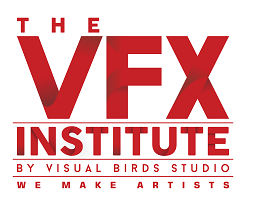New Education Policy NEP
Shifting Focus to Vocational Training for Career Readiness
New Education Policy (NEP)
is a comprehensive framework aimed at
transforming the Indian education system to meet the challenges of the 21st century by emphasising holistic development equity, skill development, digital literacy, multilingualism, and innovation.
NEP pivoting vocational training
- The focus on vocational training in the New Education Policy (NEP) is a significant
departure from the previous education frameworks in India.
2. The National Education Programme 2024 emphasises the importance of digital
literacy and proficiency in emerging technologies.
3. Collaboration between educational institutions and industry partners is a key focus of
the National Education Programme 2024, aiming to bridge the gap between
academia and industry.
4. The policy advocates for the establishment of vocational tracks in schools, allowing
students to choose vocational subjects alongside academic subjects. This enables
them to develop skills relevant to various industries and professions’
5. The NEP emphasises the importance of internships and apprenticeships as part of
vocational training. It encourages collaborations between educational institutions and
industries to provide hands-on experience to students, helping them gain practical
skills and exposure to real-world work environments.
6. The policy highlights the need for a renewed focus on skill development across all
levels of education. This includes not only technical skills but also soft skills such as
communication, teamwork, and problem-solving, which are essential for success in
the workplace.
VFX Institute Aligns with National Education Policy
- VFX institute is contributing to this initiative by providing specialised training in a
rapidly growing field that intersects art, technology, and entertainment.
2. Visual Effects education integrates artistic creativity with technical proficiency,
fostering critical thinking, problem-solving, and collaboration skills essential for
success in the digital age.
3. The VFX industry is experiencing high demand for skilled professionals in areas such
as animation, visual effects for films and TV, virtual reality, and augmented reality.
4. Our institute is bridging the gap between traditional education and industry needs
because we offer practical, industry-relevant training programs aligned with the latest
technological advancements and industry standards.
5. We play a crucial role in fostering digital literacy by providing hands-on experience
with industry-standard software and tools used in VFX production, thus preparing
students for careers in technology-driven fields.
6. We adopt inclusive teaching methodologies and provide personalised learning
experiences that accommodate students with varying skill levels, interests, and
learning styles.
7. We have established partnerships with VFX studios, production houses, and
technology companies to offer real-world projects, internships, and mentorship
opportunities, providing students with valuable industry exposure and networking
opportunities.
Conclusion:
The emphasis on vocational training in the NEP reflects a broader shift
towards a more holistic and inclusive approach to education, aiming
to equip students with the skills and knowledge necessary for both
academic success and career readiness.
By aligning with the goals of the National Education Programme 2024
and providing specialised training in VFX and digital arts, our institute
is empowering students with the skills, knowledge, and experiences
needed to thrive in a rapidly changing world. Together, we can contribute
to the development of a skilled workforce, foster innovation, and drive
economic growth in the digital age.

